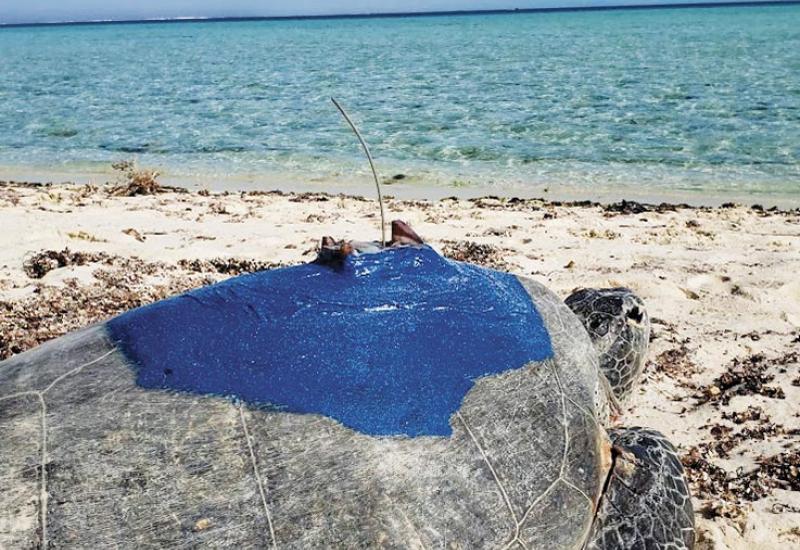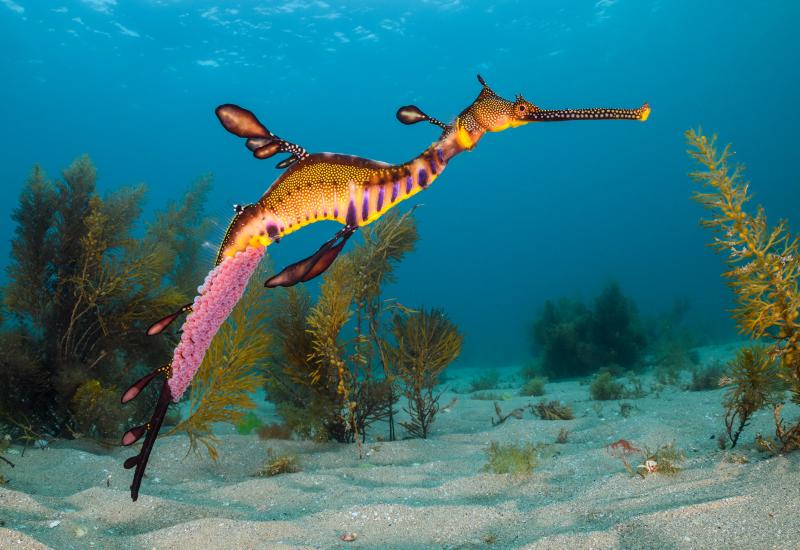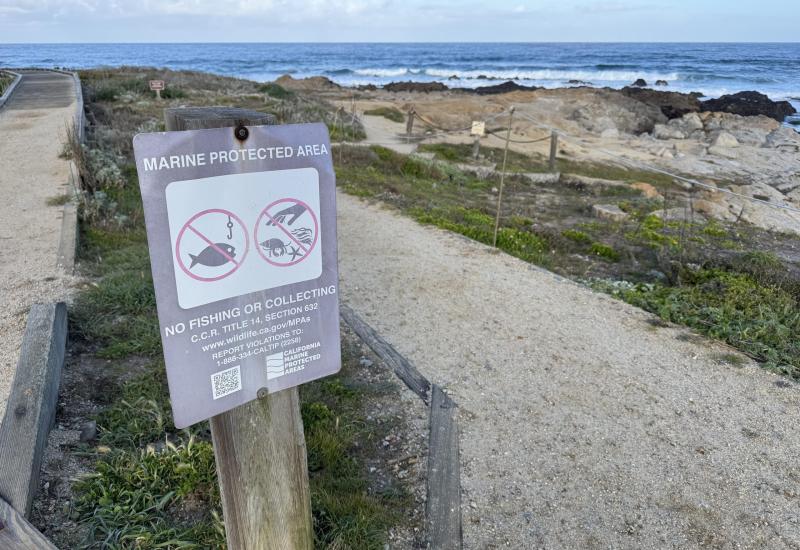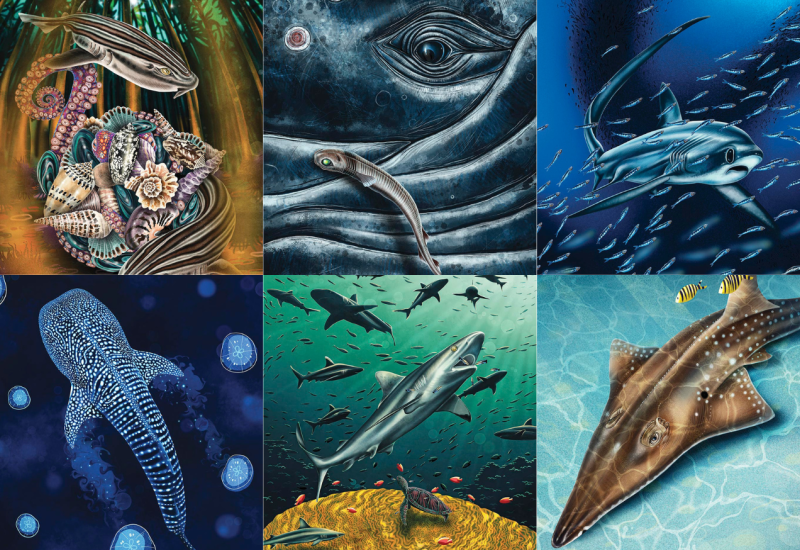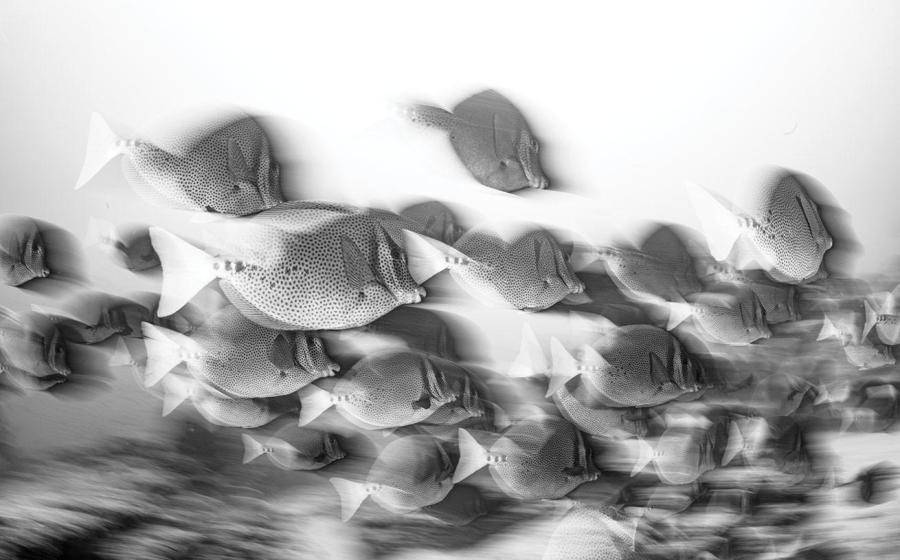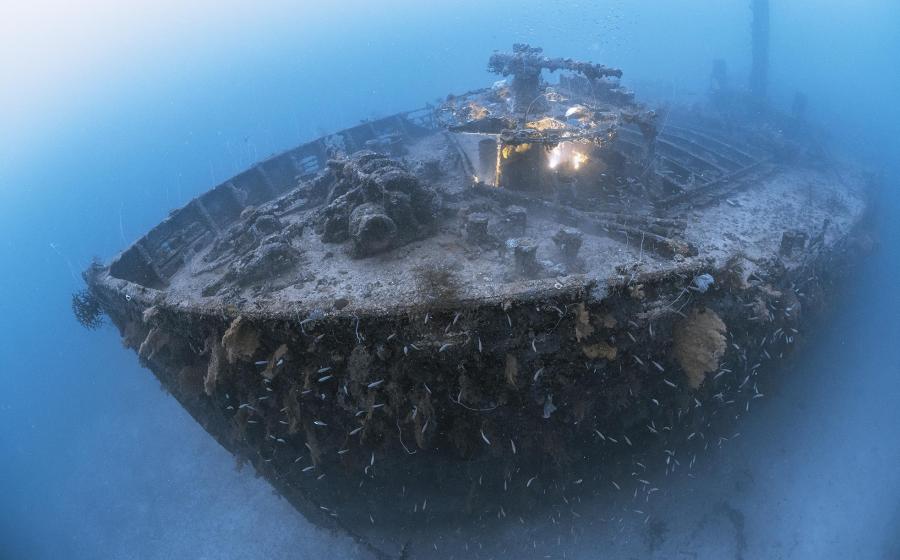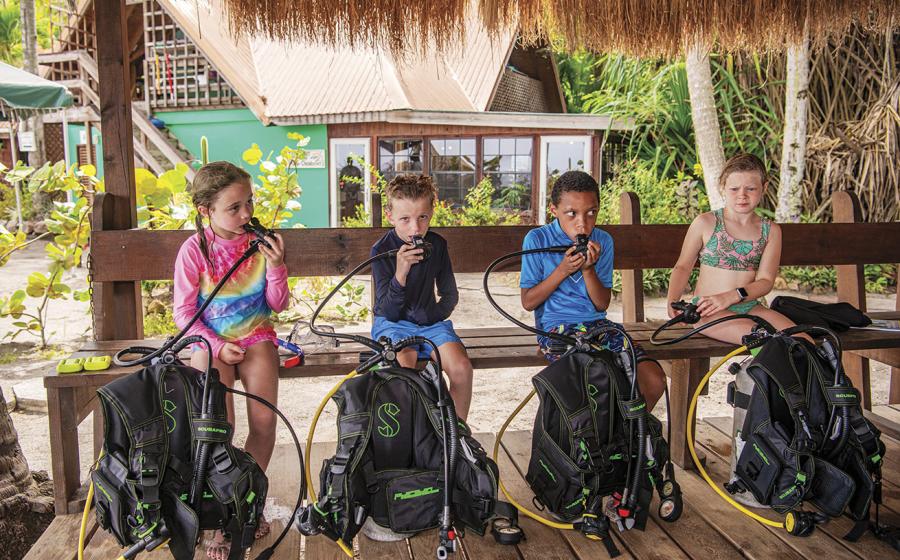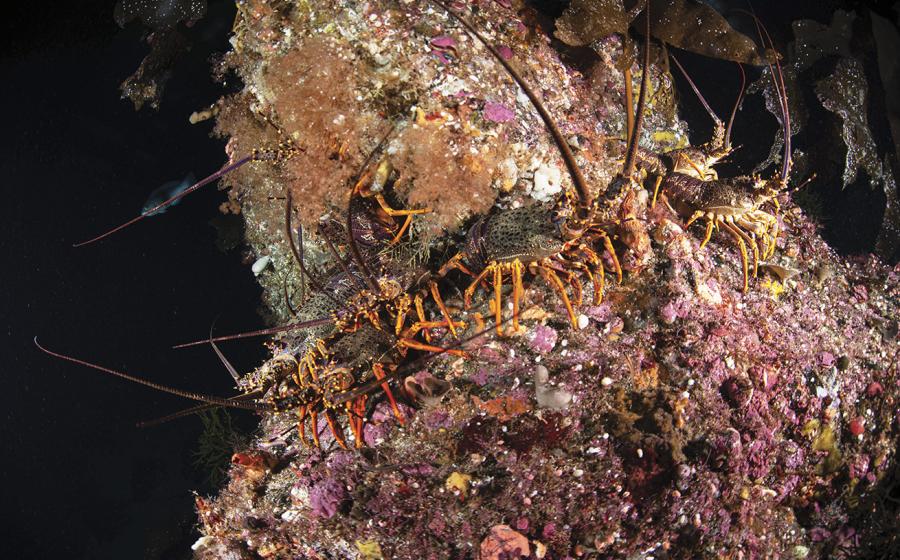Scientists Find Sharks Living Inside Active Underwater Volcano
When scientists started studying the murky orange waters around the Solomon Islands’ submerged Kavachi volcano, the last thing they expected to see was schooling sharks.
But the first glimpse of this unique habitat through underwater cameras revealed a number sharks, including reef sharks, hammerheads and scalloped hammerheads. The discovery is the subject of National Geographic’s new Sharkcano documentary.
Kavachi is active, and eruptions are common. But the sharks are not scared off by the underwater explosions or submarine boiling lava. It is theorized this may be due to special pores near their snouts, called ampullae of Lorenzini, which scientists believe allow them to sense changes in Earth’s magnetic field. Sharks use the information for homing and migration, and may also use them to avoid dangerous situations.
“It looked like the sharks in the volcano were used to dealing with eruptions,” Michael Heithaus, a scientist and professor in the Department of Biological Sciences at Florida International University, told 9News Australia. “You would think it’s dangerous, but studies have shown us they can detect approaching hurricanes and cyclones, so they may be able to detect when something bad is about to happen and move out of the way.”
This could explain how sharks can live in these conditions, but scientists remain puzzled as to why.
Since Kavachi’s sharks were first discovered in 2015 by National Geographic grantee Dr. Brennan Phillips, Heithaus has focused his research on trying to connect the dots between sharks and these oceanic hotspots.
“Extreme environments are something they can clearly handle; whether it’s a volcano or surviving thousands of meters underwater,” Heithaus says. “It’s really not yet known why they are there. It could be something to do with reproduction…Maybe they’re just sniffing out a meal.”
To get a better picture of how sharks interact with these environments, Heithaus visited another underwater volcano, Piton de la Fournaise off of France's Réunion Island in the Indian Ocean. In 2013, after more than 20 shark attacks on Réunion beaches, nine of which were fatal, the island government banned swimming and surfing. Today the water sports are limited to two beaches sealed from the open ocean with underwater metal netting.
No concrete answers have emerged, but whether it’s the cloudy water created by volcanic sediment or the lack of fishermen in the area, something about the volcanoes attracts apex predators, he says.
"If it wasn't a great place to live they probably wouldn't be there,” Heithaus says. “Who doesn't like a hot tub?"

